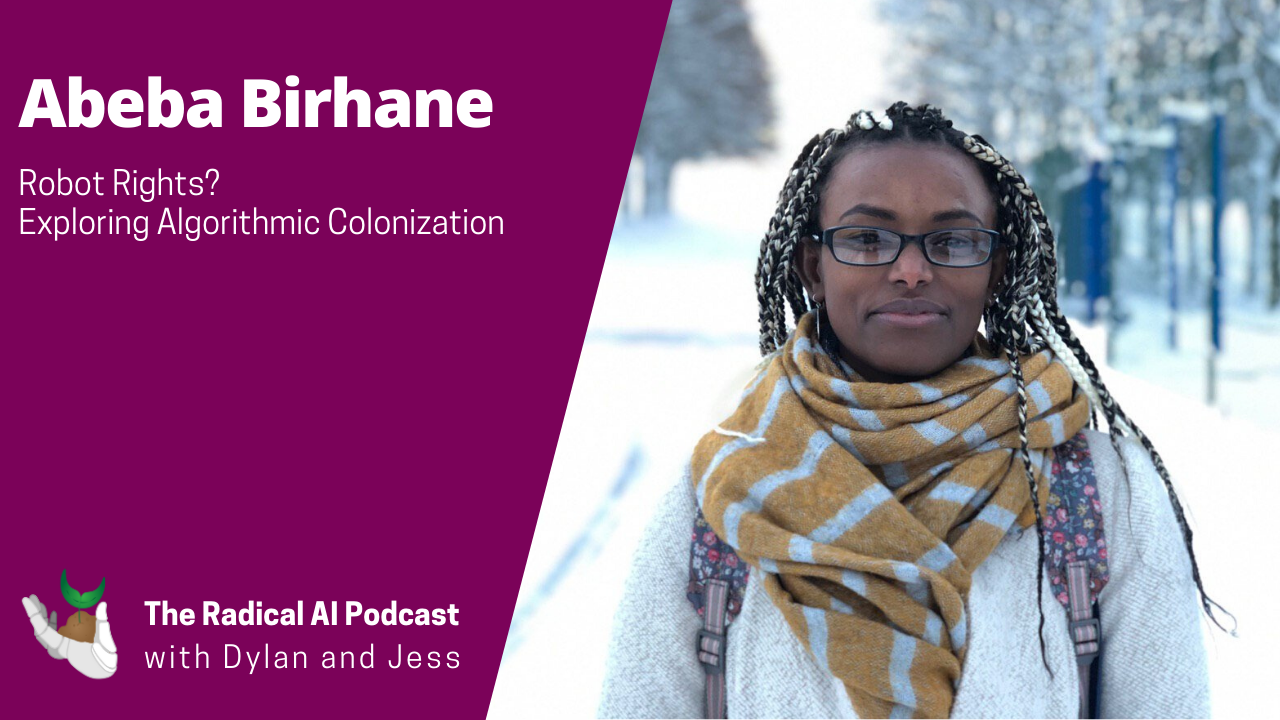
ΑΙhub.org
Radical AI podcast: featuring Abeba Birhane

Hosted by Dylan Doyle-Burke and Jessie J Smith, Radical AI is a podcast featuring the voices of the future in the field of artificial intelligence ethics. In this episode Jess and Dylan chat to Abeba Birhane about “Robot Rights? Exploring Algorithmic Colonization”.
Robot Rights? Exploring Algorithmic Colonization with Abeba Birhane
Should we grant robots rights? What is moral relationality and how can it be useful for designing machine learning algorithms? What is the algorithmic colonization of Africa and why is it harmful? To answer these questions and more The Radical AI Podcast welcomes Abeba Birhane to the show. Abeba Birhane is a PhD candidate in cognitive science at University College Dublin in the School of Computer Science. She studies the relationships between emerging technologies, personhood and society. Specifically, Abeba explores how technology can shape what it means to be human. Abeba’s work is incredibly interdisciplinary – bridging the fields of cognitive science, psychology, computer science, critical data studies, and philosophy. You can follow Abeba Birhane on Twitter @Abebab. For more of Abeba’s work, check out her website.
Full show notes for this episode can be found at Radical AI.
Listen to the episode below:
About Radical AI:
Hosted by Dylan Doyle-Burke, a PhD student at the University of Denver, and Jessie J Smith, a PhD student at the University of Colorado Boulder, Radical AI is a podcast featuring the voices of the future in the field of Artificial Intelligence Ethics.
Radical AI lifts up people, ideas, and stories that represent the cutting edge in AI, philosophy, and machine learning. In a world where platforms far too often feature the status quo and the usual suspects, Radical AI is a breath of fresh air whose mission is “To create an engaging, professional, educational and accessible platform centering marginalized or otherwise radical voices in industry and the academy for dialogue, collaboration, and debate to co-create the field of Artificial Intelligence Ethics.”
Through interviews with rising stars and experts in the field we boldly engage with the topics that are transforming our world like bias, discrimination, identity, accessibility, privacy, and issues of morality.
To find more information regarding the project, including podcast episode transcripts and show notes, please visit Radical AI.










